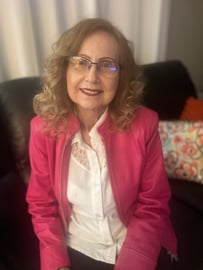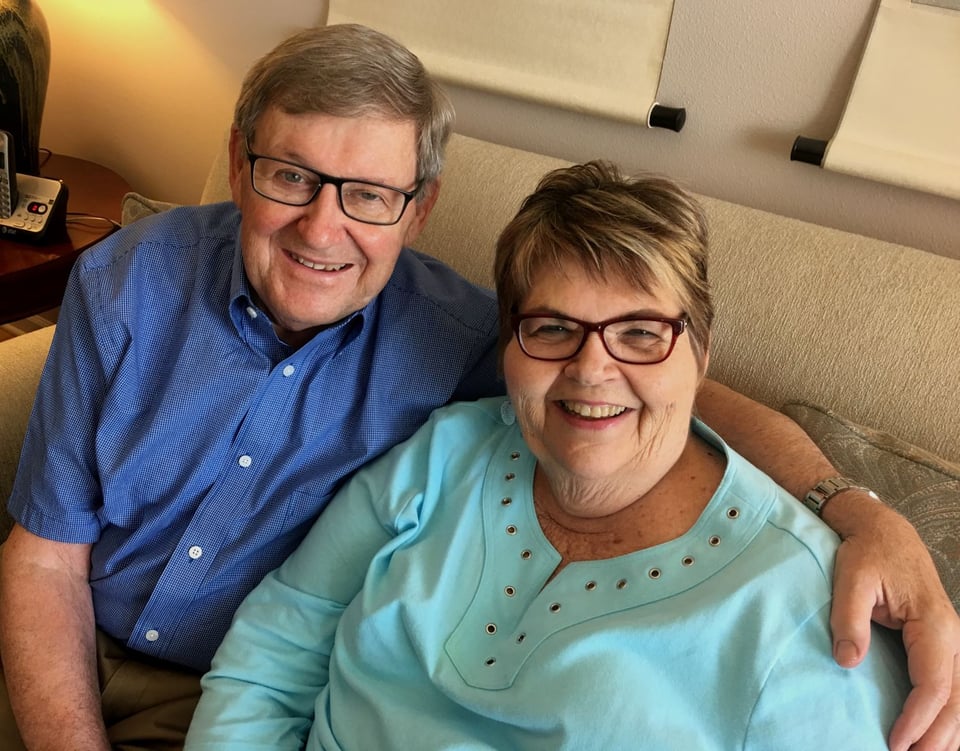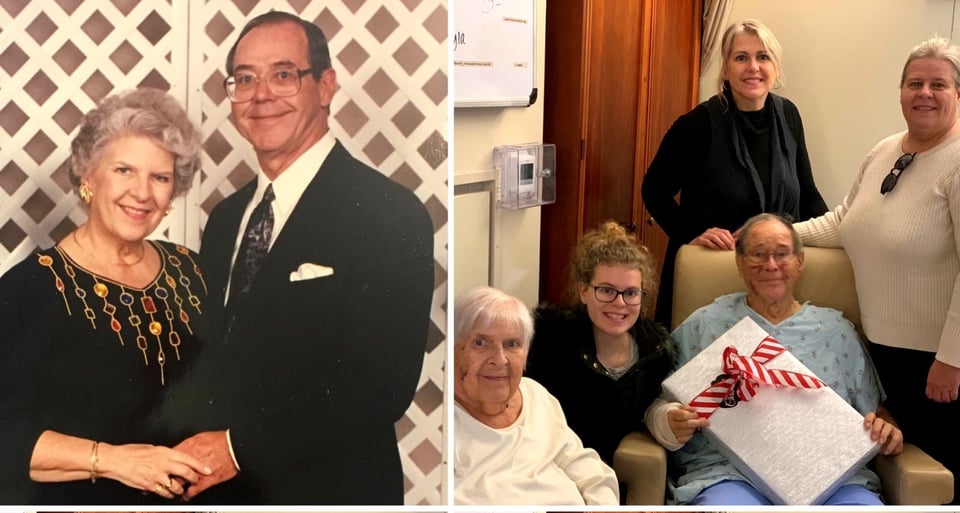 When Teresa Gyldenvand was looking for short-term rehabilitation for her father, one name kept coming up over and over: Edgewater, a WesleyLife community in West Des Moines, Iowa. It didn't take her long to see what all the fuss was about.
When Teresa Gyldenvand was looking for short-term rehabilitation for her father, one name kept coming up over and over: Edgewater, a WesleyLife community in West Des Moines, Iowa. It didn't take her long to see what all the fuss was about.
"Dad had a number of health problems and we were frequently transitioning him from home to hospital to rehab, and he didn't always handle those transitions well," Teresa, also of West Des Moines, recalls. "But as soon as we got him to Edgewater, he relaxed.
"It was the way everyone there communicated with him, but they also kept him focused and busy. He was made to feel that getting better was his job, and having a 'job' to do gave him a feeling of purpose.
"He worked hard and was proud of what he could do. When it came time to leave, he didn't want to!"
Teresa's story is typical of family members whose loved ones have benefited from short-term rehabilitation at a WesleyLife community. Short-term rehabilitation helps a client bridge the gap between hospital and home; after a hospital stay, a person may not be strong enough to return to their place of residence. Rehabilitation helps them regain skills, provides them with added confidence, and even can help prevent re-hospitalization.
A number of variables contribute to favorable rehabilitation experiences within WesleyLife communities, but one clearly stands out: our superior functional outcomes.
What's a functional outcome?
Functional outcomes are critical in measuring the success of a rehabilitation program. In WesleyLife's Communities for Healthy Living, we use a multidimensional team approach to ensure our therapy teams deliver the best possible services and care.
And it's working: Assessed within the Centers for Medicare and Medicaid Services' 5-star rating system, short-term rehabilitation at all WesleyLife's exceeds state and national average scores.
For example, during the most recent ratings period, Edgewater received a 5-star rating — the highest possible — compared with a national average of 3.6 and a state average of 3.4. The remainder of WesleyLife's communities received ratings between 4 and 5 for programs, which consist of physical, occupational, and speech therapies.
"In all our programs, we strive to achieve superior functional outcomes by working closely with our clients, families, and teams of physicians, nurses, therapists, and social services," Janet Simpson, Vice President of Network Operations for WesleyLife, says.
"Our therapists will evaluate, plan, and provide interventions based on individualized needs while continually reassessing each person's plan to help that person achieve maximum independence. That process ensures the optimal level of care is provided to help the client get well — and get home again!"
Skills that lead to high functional-outcome scores include, but are not limited to, such milestones as navigating level surfaces, transferring from bed to chair and back again, and performing activities of daily living — all of which can be challenging after a hospital stay, which typically necessitates limited activity.
Post-acute outcomes are also collected and scored; those include such variables as length of stay, which is typically shorter than average in WesleyLife programs. For example, the national average stay in short-term rehabilitation is 30.05 days, but Edgewater clients typically go home after only 25 days.
Connie's successful stay at Brio
 When Connie M. arrived at Brio of Johnston, a WesleyLife community in Johnston, Iowa, after a hospitalization that had resulted from a fall outside her home, she didn't know what to expect. Her doctor had referred her for a short-term rehabilitation stay, and she had heard good things about Brio, whose program is 4-star-rated with an average length of stay of only 15.7 days. But she was tired, in pain, and just wanted to go home.
When Connie M. arrived at Brio of Johnston, a WesleyLife community in Johnston, Iowa, after a hospitalization that had resulted from a fall outside her home, she didn't know what to expect. Her doctor had referred her for a short-term rehabilitation stay, and she had heard good things about Brio, whose program is 4-star-rated with an average length of stay of only 15.7 days. But she was tired, in pain, and just wanted to go home.



